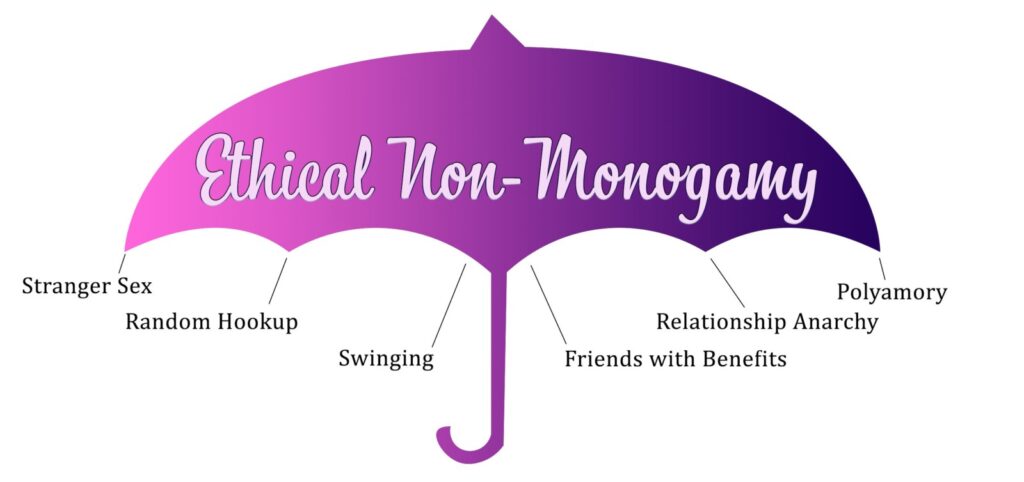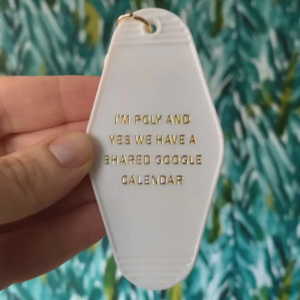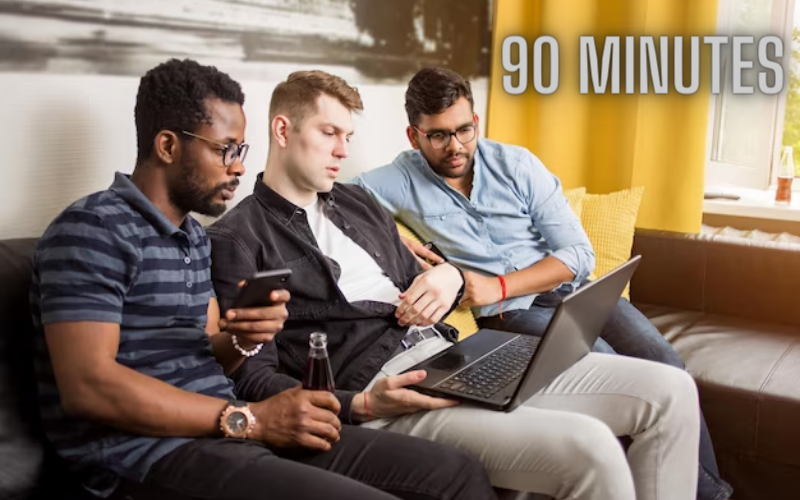Here's How I Can Help
Topics We Can Discuss
Peer Support Services
Sometimes, you just need someone to talk to who has been through this and can understand what it's like. I have been polyamorous since 2019. I am a parent. I've been part of a polycule. I "get it."
The Poly Advisor is Peer Support. It is not meant to replace or substitute for therapy and/or life coaching.
I'm offering a "no judgment zone" where I will hold space for you to share your non-monogamy challenges with a friendly ear. Whether you prefer to communicate by email or in a video chat, there's a flexible option for everyone!
Frequently Asked Questions (FAQ)
01 About The Poly Advisor
I am Michael E. Rubin, and I am The Poly Advisor.

Here are 10 fun facts about me:
- I reside in Indianapolis, Indiana.
- I have been polyamorous since 2019.v
- I am currently single, but have most often been the "hinge" in a "V" between two long-term partners.
- I am divorced.
- I am the proud father of an amazing middle school child (yes, he knows about polyamory).
- I'm originally from Chicago, but have lived in Phoenix, Las Vegas, Cincinnati, Medford/Ashland (Oregon), Atlanta, and Indianapolis (as of 2018).
- I went to college with the intention of becoming a journalism or an opera singer.
- I am a die-hard Chicago Cubs fan.
- I still eat hot dogs with ketchup (sorry, Dad).
- I am probably the only polyamoryist who likes board games and card games, but doesn't love them.
Yes. I identify as Ethically Non-Monogamous and Polyamorous.
For an added twist, I also identify as a Relationship Anarchist.
First, let me offer the Official Definition:
Peer support is a way of thinking about purposeful relationships. It is a process where both people (or a group of people) use the relationship to look at things from new angles, develop greater awareness of personal and relational patterns, and to support and challenge each other as we try new things.
- Excerpted from the International Mental Health Collaborating Network (IMHCN)
Ever since it was developed in the 1990's, international peer support (IPS) has found increasing acceptance as an alternative to psychiatric hospitalization by mental health professionals, families, friends and community-based organizations.
Let me now offer you my definition:
Peer support is when people use their own experiences to help each other. It connects people together through their shared lived experiences to support each other, provide safe space, and create an environment of acceptance and understanding.
Peer support is not a replacement for traditional therapy or counseling. In fact, I have been in therapy myself (DBT and CBT FTW) as an individual, with my partner, and in a group setting. I think self-examination with a trained practitioner is a good thing, and I encourage everyone to consider it.
What is peer support for ethical non-monogamy (ENM)?
Peer support offers individuals, couples, and polycules who identify as ethically non-monogamous a chance to speak with a peer who shares their lived experience in a non-clinical setting.
If needed, traditional therapy and coaching are still available. However, a word of caution: it is not always possible to find traditional therapists well informed in the nuances of non-monogamous relationships. In addition, traditional therapy can also be costly, and many practices are on a months-long waitlist to see new patients.
Ultimately, ethically non-monogamous peer support fills a need and a gap. It's not "either/or" but rather "yes, and..."
"Much like improvisation in music, peer support is a process of experimentation and co-creation, and assumes we play off each other to create ever more interesting and complex ways of understanding."
- Shery Mead, Founder of International Peer Support
I am not a therapist, life coach, or relationship coach.
But I am not opposed to them. For more detail, please see my answer here.
Here is a listing of the services I offer as The Poly Advisor. Everything is personalized for the individual, couple, or polycule involved.
If you see a need for something not listed here, please contact me. I am happy to offer work with you to offer a service customized for your needs.
To see the latest packages available, please see the Peer Support page on the website.
Email Peer Support (Basic)
- Get peer support by email.
- Includes 2 emails per month.
- Perfect for those who want convenience and speed.
Email Peer Support (Unlimited)
- Get peer support by email.
- Includes unlimited emails for 60 days.
- Perfect for those who want convenience and ongoing communication.
Video Peer Support Solo (45 Minutes)
- Enjoy peer support by video call.
- 45 minutes
- 1-on-1
Video Peer Support Solo (90 Minutes)
- Enjoy peer support by video call.
- 90 minutes
- 1-on-1
Video Peer Support for Two or More
- Enjoy peer support by video call.
- 90 minutes
- For couples, triads, quads, polycules, etc.
Emergency Peer Support
- Get peer support by video call.
- Same-day or next-day scheduling.
- 90 minutes
- For anyone (individuals, couples, polycules, etc.)
Poly Matchmaker
- Perfect for those frustrated with dating apps.
- I'm offering a curated experience where I'll match you with at least 2 potential dates per month.
The Man Upgrade
- Special package for men only.
- I'll be your virtual wingman.
- Includes 1 60-min video chat
- Photo coaching
- A new dating app profile
- 3 months FREE on the Poly Matchmaker service.
It's easy as 1-2-3.
- Please contact me to setup your FREE 15-minute consultation.
- We decide together a time, date, and communication method (email or video chat) that fits your needs and schedule.
- We proceed with the time, date, and communication method we decided in step 2. That's it!
There are three ways you can contact me.
- Email me at michael@thepolyadvisor.com.
- Call me at 847-370-3421.
- Use my contact page.
02 Who I Help
Yes!
New to non-monogamy? Many people I speak with aren't sure if they are really polyamorous or ready to open their existing relationship. That's ok! I offer you a "no judgment zone" where I will hold space for you to share your questions and challenges with a friendly ear.
Here's why I'm a a trusted advisor:
- I offer friendly, non-judgmental ways you can talk about jealousy and envy.
- I am someone you can confide in when you’re wondering “How the heck do I stop freaking out?”
- I can help you navigate non-monogamy when you have children.
- I can provide ideas on where to find dates and potential partners.
- I can provide resources for further learning.
Yes!
Do you already consider yourself polyamorous or ethnically non-monogamous? Many people consider it helpful to talk over their challenges and questions with someone who's been there before, too. I offer you a "no judgment zone" where I will hold space for you to share your questions and challenges with a friendly ear.
Here's why I'm a a trusted advisor:
- I offer friendly, non-judgmental ways you can talk about jealousy and envy.
- I am someone you can confide in when you’re wondering “How the heck do I stop freaking out?”
- I can help you navigate non-monogamy when you have children.
- I can provide ideas on where to find dates and potential partners.
- I can provide resources for further learning.
Yes!
Are you in a couple, triad, or polycule? I can help.
Many people consider it helpful to talk over their challenges and questions with someone who's been there before, too. I offer you a "no judgment zone" where I will hold space for you to share your questions and challenges with a friendly ear.
Here's why I'm a a trusted advisor:
- I offer friendly, non-judgmental ways you can talk about jealousy and envy.
- I am someone you can confide in when you’re wondering “How the heck do I stop freaking out?”
- I can help you navigate non-monogamy when you have children.
- I can provide ideas on where to find dates and potential partners.
- I can provide resources for further learning.
Yes!
Whether you've been together for 2 months, 2 years, 12 years, or 52 years, opening your marriage or long-term relationship can be a process filled with fear and excitement -- sometimes at the same time! But with communication, compassion, and consent, you will find that it's possible for you and your partner to not only survive, but thrive!
I offer you a "no judgment zone" where I will hold space for you to share your questions and challenges with a friendly ear.
Here's why I'm a a trusted advisor:
- I offer friendly, non-judgmental ways you can talk about jealousy and envy.
- I am someone you can confide in when you’re wondering “How the heck do I stop freaking out?”
- I can help you navigate non-monogamy when you have children.
- I can provide ideas on where to find dates and potential partners.
- I can provide resources for further learning.
03 About Non-Monogamy and Polyamory

Ethical non-monogamy (ENM) is an umbrella term for a number of non-monogamous (non-traditional) relationship structures. The ethical part is the key: the relationship occurs "with the full knowledge and consent of all involved.")
A wide assortment of different individual relationship models fall under the broad definition of ENM, including:
- Stranger sex
- Random hookup
- Open marriage
- Swinging
- Relationship anarchy
- FWB (friends with benefits), etc.
- Polyamory
- Whatever custom form your relationship takes
What all versions of ENM have in common is that the relationship is not fully monogamous and that everyone involved is consenting to this vision/structure.
For example:
- Swinging can be ethical non-monogamy, if it's being done ethically.
- Polyamory can be ethical non-monogamy, if it's being done ethically.
- Cheating is not ethical non-monogamy since it is not being done with the knowledge and consent of everyone involved.
Let's do the numbers:
- According to Match's 2024 Singles in America study, about one-third of American singles say they've had a consensually non-monogamous relationship. A slightly higher proportion described their ideal relationship as something other than complete monogamy in a 2023 YouGov survey.
- The dating app, Feeld, saw a 500% increase between 2020 and 2023 in the number of users including the terms "ethically non-monogamous" and "polyamorous" in their profiles.
- In February 2024, 33% of users of the dating app OkCupid said they'd consider an open relationship, up from 27% in 2014. And there was a 45% increase in profile mentions of terms relating to non-monogamy between 2021 and 2023.

Polyamory is a form of consnsual, or ethical non-monogamy (ENM) in which a person is involved with multiple romantic or sexual partners at the same time.
Consent is crucial in ENM. One of the most important parts of being polyamorous is making sure that you — and any romantic or sexual partners you have — are aware of and consenting to the relationships you have with them and others.
Let's do the numbers:
- About one-third of polled American singles say they've had a consensually non-monogamous relationship, according to Match's 2024 Singles in America study — and a slightly higher proportion described their ideal relationship as something other than complete monogamy in a 2023 YouGov survey.
- The dating app Feeld saw a 500% increase from 2021 to 2024 in the number of users including the terms "ethically nonmonogamous" and "polyamorous."
- In early February 2024, 33% of OkCupid reported they'd consider an open relationship, up from 27% in 2014. And there was a 45% increase in profile mentions of terms relating to nonmonogamy between 2021 and 2023.
Obvious disclaimer: I am not a lawyer. Please consult a legal professional for legal advice.
Polyamory is the practice of engaging in multiple loving and consensual relationships at one time. It is legal.
Even though polyamory is legal, however, it is not a legally protected class like being straight or gay. That means you can lose your job for being polyamorous. Courts can use it against you in child custody proceedings.
For more information on the legality of polyamory, I recommend contacting the Polyamory Legal Advocacy Coalition (PLAC).
Obvious disclaimer: I am not a lawyer. Please consult a legal professional for legal advice.
First off, let's just say it: polyamory is NOT Sister Wives.
Breaking it down:
- Polyamory is the practice of engaging in multiple loving and consensual relationships at one time. It is legal.
- Polygamy is an arrangement in which one person has multiple spouses. It is illegal.
In other words, you cannot legally marry multiple partners (i.e., polygamy). But if you want to have a loving and consensual relationship with multiple partners (i.e., polyamory), there's no law against it and nobody is going to stop you.
While it is true that historically polygamous relationships were practiced in different cultures around the world, it is currently illegal in many countries (including the United States and Canada). Polygamous relationships followed a religious doctrine where the head of the family was male and he governed the relationships based on rules, structure, and status dictated by the religious community. They also traditionally engaged in heteronormative sexual behavior, which meant the man was able to have sex with all of the women, but the women only had sex with him.
The short answer: No. Polyamory is not only about sex.
The longer answer: I have a confession.
When I first became aware of ethical non-monogamy and polyamory, the first images that popped into my head were 1960's hippie-style "free love" and 1970's swinger key parties. My 1993 high school job was Blockbuster Video and I remember getting at least one call a night asking if we had the 1969 movie Bob & Carol & Ted & Alice (we did, but it was ALWAYS rented).

Basically, I equated "polyamory" with "sex." And I was wrong.
The misconception exists because many people assume that polyamory simply involves having loads more sex. But it's far more than that. Time and effort often goes into maintaining multiple relationships. Polyamory requires strong time management skills and plenty of planning ahead. There's even a running joke that goes "polyamory is for people obsessed with Google Calendar."

I'm Poly and yes, we have a Shared Google Calendar.
As I've written elsewhere in this FAQ, polyamory is about having having different kinds of loving, consensual, intimate relationships with more than one person at a time. The literal definition is "multiple loves." For some people, sex of some sort is crucial to poly relationships. For others, it isn't.
That means that it’s quite possible for some of those poly relationships to be close and deeply loving, but without any physical intimacy.
This might not make sense to those whose can only envision love and sex going together in the same romantic relationship. But given that 15% of traditional monogamous married couples haven't had sex in at least one year (with the infidelity rate far higher than that), perhaps it makes more sense to say that we have a cultural expectation that love and sex go together in a relationship. Clearly, it’s not exactly rare that they don’t.
Everyone does polyamory differently, and that's ok.
If someone tells you they are polyamorous, it does not automatically mean they're thinking, "Now that I've told you, I'm going to seduce you/steal your man/steal your woman/invite you to some weird sex party!”
In other words: "Yes, I'm poly. That doesn't mean I'm automatically DTF."
It just means it doesn't have to end with, "Hi, I'm married/taken/spoken for. So we can only just be friends." You can pursue it further, and even have a committed, long-term relationship with or without sex.
Just like in regular monogamous relationships.
By all accounts, the number one question polyamorous people get from non-monogamous people is "if you're polyamorous, does that mean you can just cheat with anyone?"
So let's be clear from the outset. No, polyamory does not mean you have permission to cheat.
As I wrote elsewhere in this FAQ, polyamory is a form of consensual, or ethical, non-monogamy (ENM) in which a person is involved with multiple romantic or sexual partners at the same time. Consent is crucial. One of the most important parts of being polyamorous is making sure that you — and any romantic or sexual partners you have — are aware of and consent to the relationships you have with them and others.
Polyamory is built around the pillars of honesty, communication, and consent. All of that typically means that all parties involved will have come to agreement beforehand on their boundaries and rules.
Cheating, on the other hand, is completely different. Cheating is the act of being unfaithful to your significant other through lying and deception.
Let's take three scenarios and illustrate the difference.
- You are single and connect with someone on a dating app. On your first date, your partner reveals they have a spouse at home. You are told, "They don't need to know. I am polyamorous." This is cheating because they did not communicate their wish to engage in a relationship outside their current one and their partner did not consent to this occurring.
- You are in a polyamorous triad with two other people. You and your partners have an agreement that nobody will date other people outside the triad. At some point, though, one of your partners comes to you and says they hooked up with someone else while on a business trip. This would be cheating because they betrayed the agreement you came to and had sex without talking about it first and you did not grant your consent.
- You're in a monogamous marriage. Your monogamous spouse betrays your trust by sleeping with someone else outside your marriage, but says to you, "It's not cheating. I'm polyamorous." They are wrong. It is cheating, and you are absolutely entitled to feel hurt, angry, and confused. If you never consented to being in an polyamorous relationship, you have every reason to view their activity as unfaithful. There's even a term for this: polybombing.
Yes, it is possible for a relationship to work when one is monogamous and the other is polyamorous. This is often called a "mono-poly relationship" or a "hybrid relationship."
However, let's be clear: it's not easy. "Mono-poly relationships" are indeed possible, but require partners who are secure in themselves and their choices, secure in the relationship, good communicators, and willing to do the work.
As I wrote elsewhere in this FAQ, polyamory is a form of consensual, or ethical, non-monogamy (ENM) in which a person is involved with multiple romantic or sexual partners at the same time. Consent is crucial. One of the most important parts of being polyamorous is making sure that you — and any romantic or sexual partners you have — are aware of and consent to the relationships you have with them and others.
All of this means that communication and consent is still the key. The polyamorous person may decide to follow any type of polyamorous lifestyle while their monogamous partner does not. And when both communication and consent are fully present, the mono-poly relationship can be a healthy one where both partners are getting their needs met.
But it's important to note these realistic caveats:
- Without communication and consent, it's cheating. If you're in a monogamous marriage and your monogamous spouse betrays your trust by sleeping with someone else outside your marriage, but says to you, "It's not cheating. I'm polyamorous," they are wrong. It is cheating, and you are absolutely entitled to feel hurt, angry, and confused. If you never consented to being in an polyamorous relationship, you have every reason to view their activity as unfaithful. There's even a term for this: polybombing.
- If the relationship started as a monogamous one and one partner starts to identify as polyamorous, it is often very hard for the one who has remained monogamous to manage that shift. Often, people who are monogamous don’t understand why a person would want to be polyamorous. This can sometimes lead to feeling that a polyamorous partner is looking to replace them or that if they just work hard enough, the polyamorous person will snap back and become monogamous with them again.
- Many couples decide to pursue polyamory as a way of "saving" their marriage or long-term relationship if there's a history of cheating and infidelity. There is one inherent flaw in this thinking: whatever is wrong with the marriage or relationship usually is not the sort of problem that can be remedied via polyamory. Indeed, polyamory will put huge stress on a relationship and exacerbate any existing flaws or problems. The pressure will cause the relationship to crack or shatter long before the couple reach a point of new stability.
In her book, The State of Affairs: Rethinking Infidelity, relationship expert and psychotherapist Ester Perel notes that people in happy relationships cheat not because they want to leave the marriage, but because they want to leave the person they’ve become.
"Consensual nonmonogamy means that both partners have equal say in the decision to take unfulfilled hankerings elsewhere," Ester says. "In contrast, infidelity is a unilateral decision, in which one person secretly negotiates the best deal for themselves."
Yes, I have a list of books, articles, podcasts, and other resources about ethical non-monogamy and polyamory. You can find it on the Resources page at ThePolyAdvisor.com.







